How science would fare under a Clinton or Trump administration
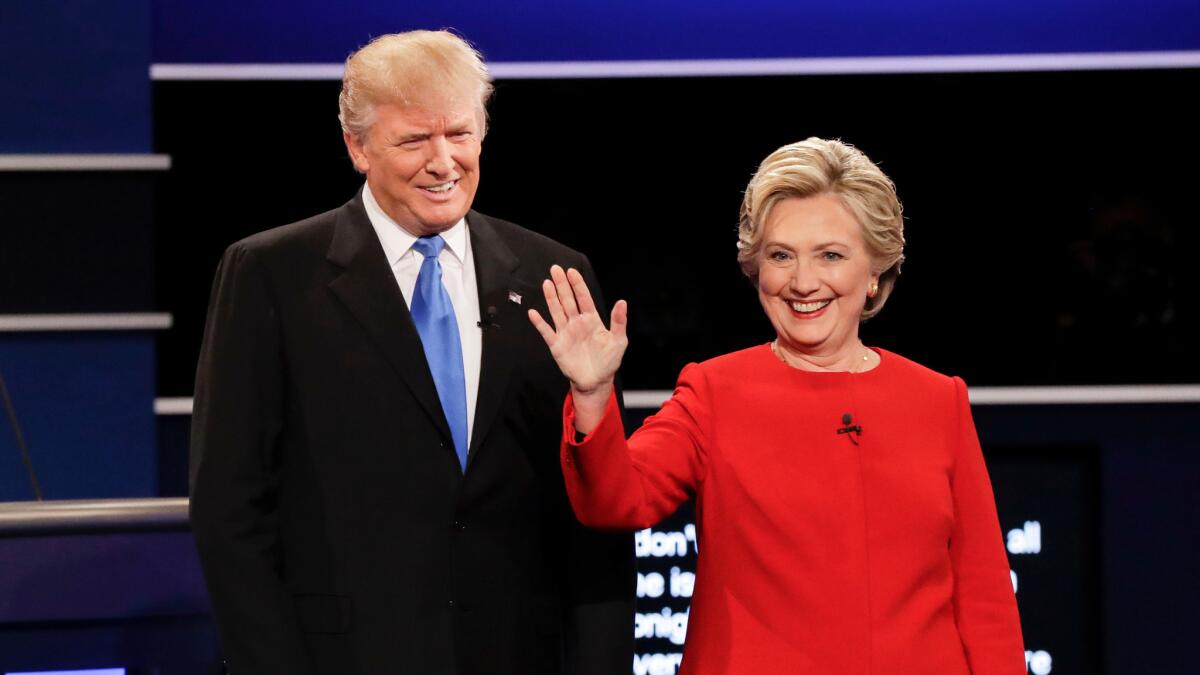
- Share via
In a presidential election season dominated by talk of birth certificates, tax returns and email servers, science has rarely made headlines. But that doesn’t mean it’s irrelevant. On the contrary, policy decisions made by the next president will influence the future of the planet and all its inhabitants for years to come.
That’s why ScienceDebate.org — an effort supported by dozens of organizations, including the American Assn. for the Advancement of Science, the National Academy of Sciences and the Union of Concerned Scientists — asked the candidates to share their views on some overlooked issues. In their responses, Democrat Hillary Clinton and Republican Donald Trump explained their goals for space exploration, their plans to address climate change, and how they would prioritize investments in scientific research, among many other topics.
Excerpts are printed below. The candidates’ complete replies, along with those of Libertarian Gary Johnson and Jill Stein of the Green Party, are online at sciencedebate.org/20answers.
What are your science and engineering research priorities and how will you balance short-term versus long-term funding?
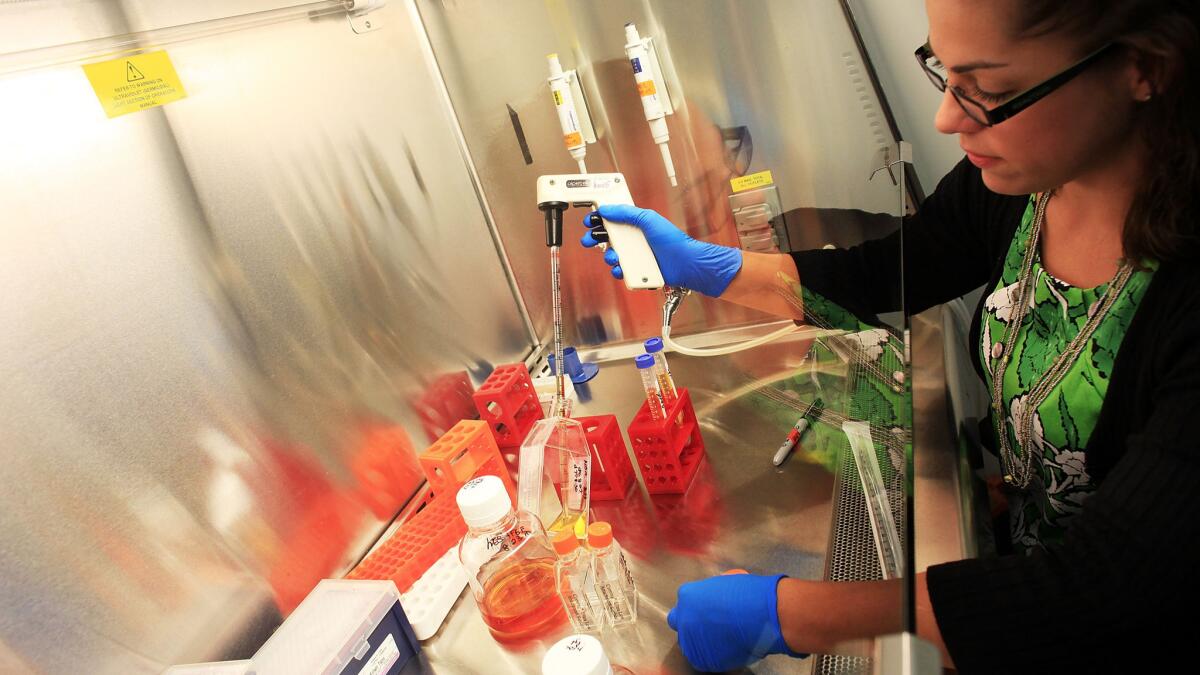
Clinton: The United States is under-investing in research. Federal funding of basic research amounts to less than 1% of annual federal spending, yet it is an investment that pays big dividends. I believe it is essential that we strengthen our research capacity by funding talented young investigators, looking for ways to prioritize “high-risk, high-reward” projects that have the potential to transform entire fields, and enhancing partnerships between government, universities and the private sector.
Trump: The premise of this question is exactly correct — scientific advances do require long-term investment. This is why we must have programs such as a viable space program that serve as incubators to innovation and the advancement of science and engineering in a number of fields. We should also bring together stakeholders and examine what the priorities ought to be for the nation.
What should America’s national goals be for space exploration and earth observation from space, and what steps would your administration take to achieve them?
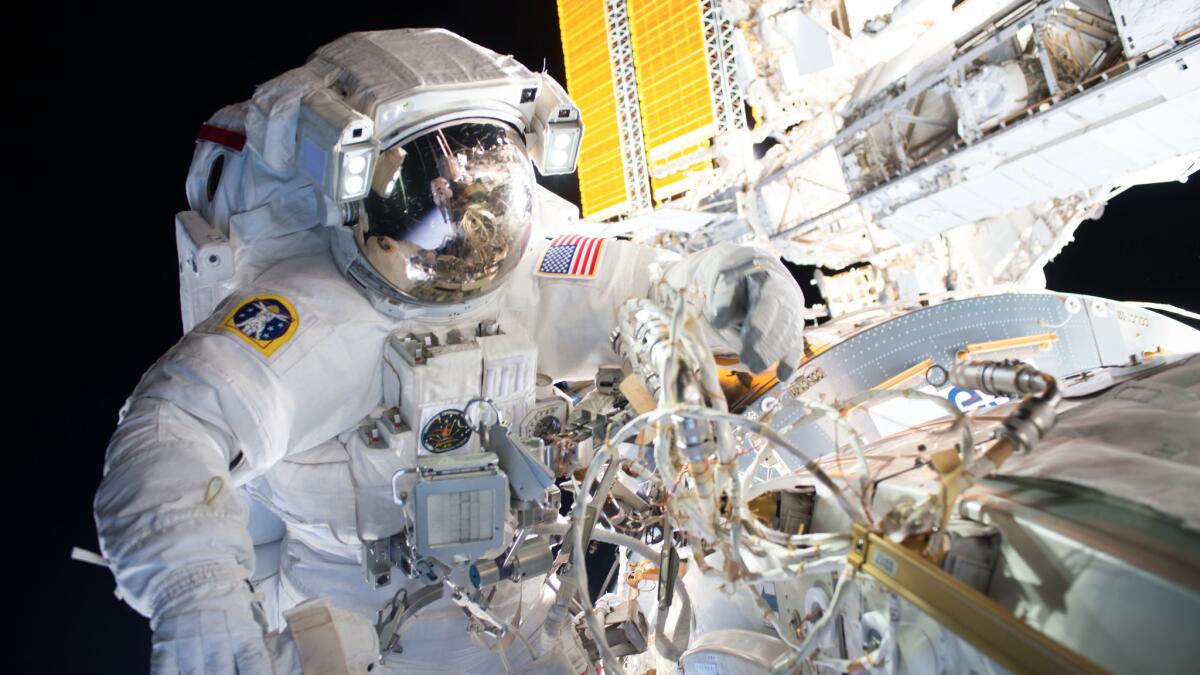
Clinton: President Kennedy’s challenge in 1962 to go to the moon within a decade electrified the nation, prompted a long period of American leadership in science and technology, and spurred a generation of innovators.
We must maintain our nation’s leadership in space with a program that balances science, technology and exploration; protect our security and the future of the planet through international collaboration and Earth systems monitoring; expand our robotic presence in the solar system; and maximize the impact of our R&D and other space program investments by promoting stronger coordination across federal agencies and cooperation with industry.
As a young girl, I was so inspired by America’s leadership and accomplishments in space that I wrote to NASA about becoming an astronaut. As president, I will help inspire the next generation of young Americans and do what I can to ensure that we have the world’s most exciting and advanced space program.
Trump: Space exploration has given so much to America, including tremendous pride in our scientific and engineering prowess. A strong space program will encourage our children to seek STEM educational outcomes and will bring millions of jobs and trillions of dollars in investment to this country. Observation from space and exploring beyond our own space neighborhood should be priorities. We should also seek global partners, because space is not the sole property of America. All humankind benefits from reaching into the stars.
What are your views on climate change, and how would your administration act on those views?
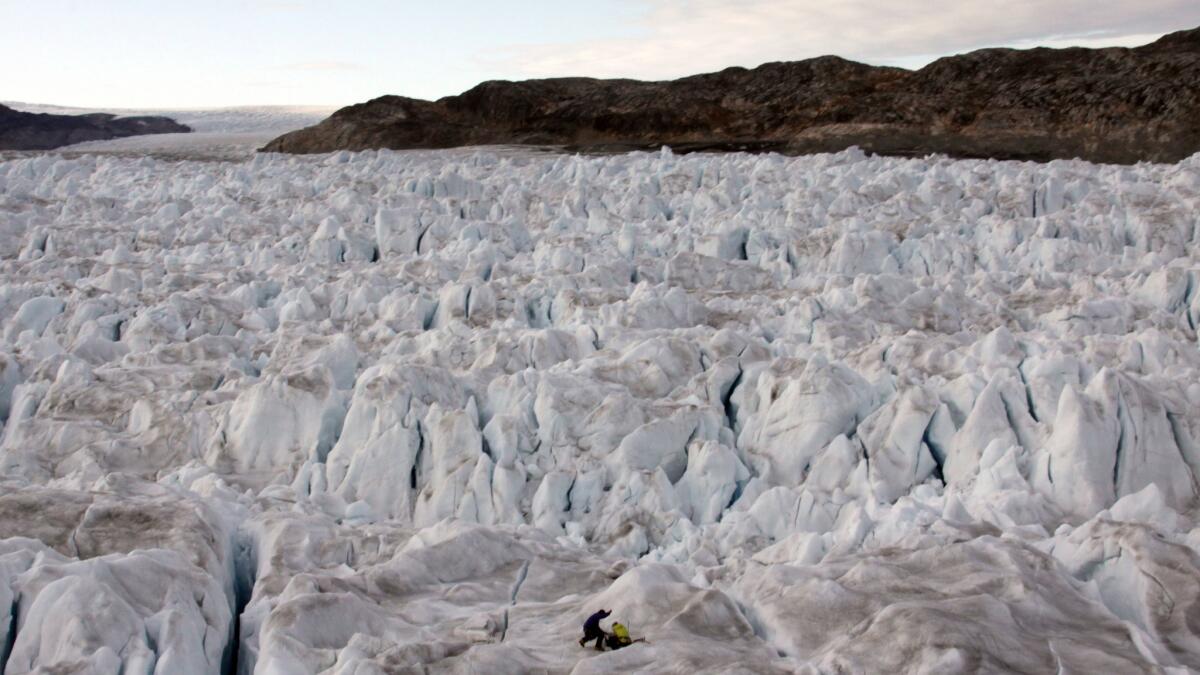
Clinton: The science is crystal clear. Climate change is an urgent threat and a defining challenge of our time, and its impacts are already being felt at home and around the world. I will set three goals that we will achieve within 10 years of taking office and which will make America the clean energy superpower of the 21st century:
• Generate half of our electricity from clean sources, with half a billion solar panels installed by the end of my first term.
• Cut energy waste in American homes, schools, hospitals and offices by a third and make American manufacturing the cleanest and most efficient in the world.
• Reduce American oil consumption by a third through cleaner fuels and more efficient cars, boilers, ships, and trucks.
Trump: There is still much that needs to be investigated in the field of “climate change.” Perhaps the best use of our limited financial resources should be in dealing with making sure that every person in the world has clean water. Perhaps we should focus on eliminating lingering diseases around the world like malaria. Perhaps we should focus on efforts to increase food production to keep pace with an ever-growing world population. Perhaps we should be focused on developing energy sources and power production that alleviates the need for dependence on fossil fuels.
Scientists are finding that the variety and variability of life is diminishing at an alarming rate as a result of human activity. What steps will you take to protect biological diversity?

Clinton: Conserving biodiversity is essential to maintaining our quality of life. Healthy soils provide the foundation for agricultural productivity and help absorb carbon; wetlands soak up floodwaters and pollutants and protect our communities; forests filter our water and keep it clean; bees and other pollinators are essential to our food supply; and coral reefs and coastal marshes are nurseries for our fisheries.
My administration will work collaboratively with other nations to advance biodiversity science, further our understanding of the causes of biodiversity loss, and take action to diminish them. And we will work collaboratively to end trafficking in wildlife and illegal, unreported and unregulated fishing that threatens our oceans.
Trump: In a Trump administration, there will be shared governance of our public lands and we will empower state and local governments to protect our wildlife and fisheries. Laws that tilt the scales toward special interests must be modified to balance the needs of society with the preservation of our valuable living resources.
How would you protect Americans from emerging diseases and other public health threats, such as antibiotic resistant superbugs?
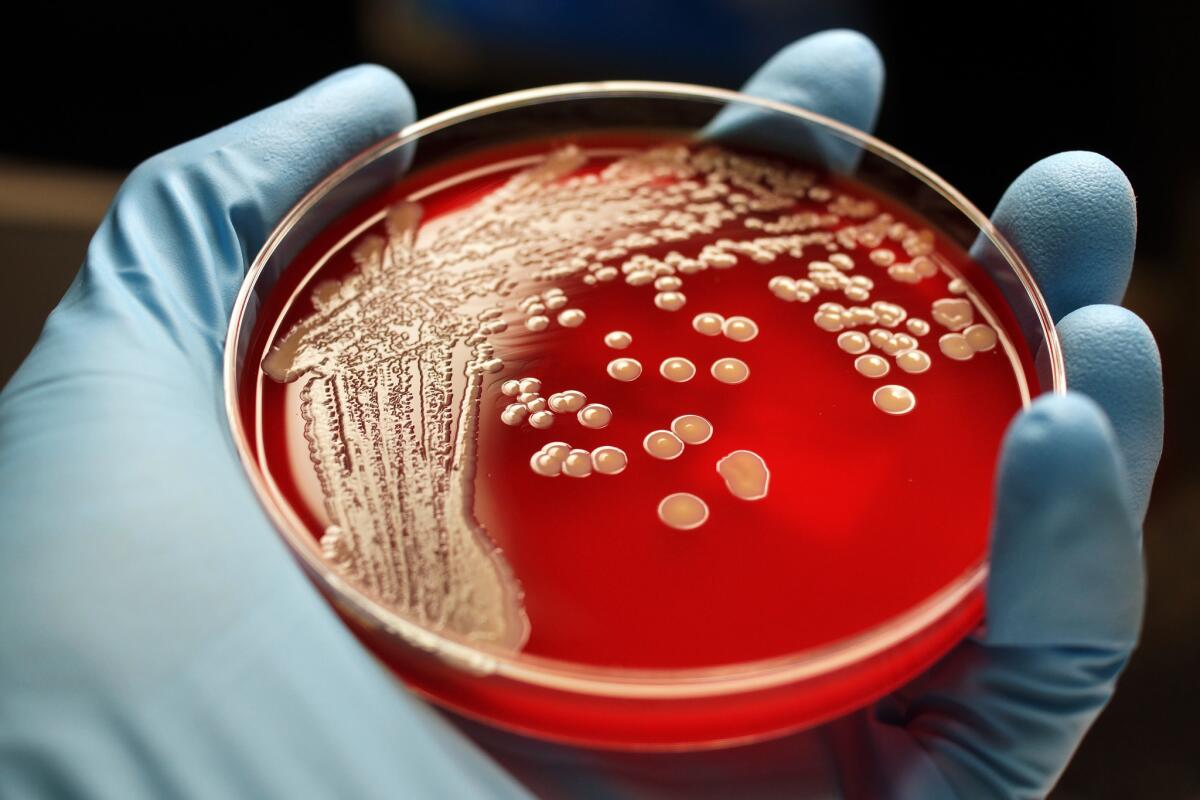
Clinton: We are not investing in public health preparedness and emergency response the way we should to keep our families and communities safe. As president, I will create a Public Health Rapid Response Fund, with consistent, year-to-year budgets, to better enable the Centers for Disease Control and Prevention, the U.S. Department of Health and Human Services, the Federal Emergency Management Agency, state and local public health departments, hospital systems and other federal agencies to quickly and aggressively respond to major public health crises and pandemics.
In addition, we need to do more to boost our preparedness for biological threats and bioweapons; to support research for new diagnostic tests, therapeutic treatments and vaccines for emerging diseases; to build capacity in public health departments; to train the next cadre of public health professionals and ensure that public health and environmental health practices are standard to the educations of medical students; and to provide resources for states and local governments to plan for complex, multi-faceted public health threats.
Trump: The implication of the question is that one must provide more resources to research and public health enterprises to make sure we stay ahead of potential health risks. We cannot simply throw money at these institutions and assume that the nation will be well served. Our efforts to support research and public health initiatives will have to be balanced with other demands for scarce resources. Working with Congress — the people’s representatives — my administration will work to establish national priorities and then we will work to make sure that adequate resources are assigned to achieve our goals.
What steps will you take to protect vulnerable infrastructure and institutions from cyber attack, and to provide for national security while protecting personal privacy on electronic devices and the Internet?

Clinton: Internet freedom and security were at the forefront of my work as secretary of State, and we must ensure this effort continues into the next administration. I will build on the Obama administration’s Cybersecurity National Action Plan, modernizing our government-wide cybersecurity and federal IT and empowering a federal chief information security officer. I also support public-private collaboration on cybersecurity innovation, along with implementing the National Institute of Standards and Technology’s Cybersecurity Framework.
As president, I will make it clear that the United States will treat cyberattacks just like any other attack. We will be ready with serious political, economic and military responses, and we will invest in protecting our governmental networks and national infrastructure. I believe the United States should lead the world in setting the rules of cyberspace. If America doesn’t, others will.
Trump: The United States government should not spy on its own citizens. That will not happen in a Trump administration. As for protecting the Internet, any attack on the Internet should be considered a provocative act that requires the utmost in protection and, at a minimum, a proportional response that identifies and then eliminates threats to our Internet infrastructure.
What will you do to reduce the human and economic costs of mental illness?

Clinton: We’ll promote early diagnosis and intervention, including launching a national initiative for suicide prevention. We’ll integrate our nation’s mental and physical healthcare systems so that healthcare delivery focuses on the “whole person,” and significantly enhance community-based treatment opportunities. We’ll improve criminal justice outcomes by training law enforcement officers in crisis intervention, and prioritizing treatment over jail for low-level, nonviolent offenders. We’ll enforce mental health parity to the full extent of the law. And we’ll invest in brain and behavioral research and developing safe and effective treatments.
My goal is that within my time in office as president, Americans will no longer separate mental health from physical health when it comes to access to care or quality of treatment. The next generation must grow up knowing that mental health is a key component of overall health and that there is no shame, stigma or barriers to seeking out care.
Trump: Any mental health reforms must be included in our efforts to reform healthcare in general in the country. We must ensure that the national government provides the support to state and local governments to bring mental health care to the people at the local level. This entire field of interest must be examined and a comprehensive solution set must be developed so that we can keep people safe and productive.
How do you see the energy landscape evolving over the next 4 to 8 years, and, as president, what will your energy strategy be?
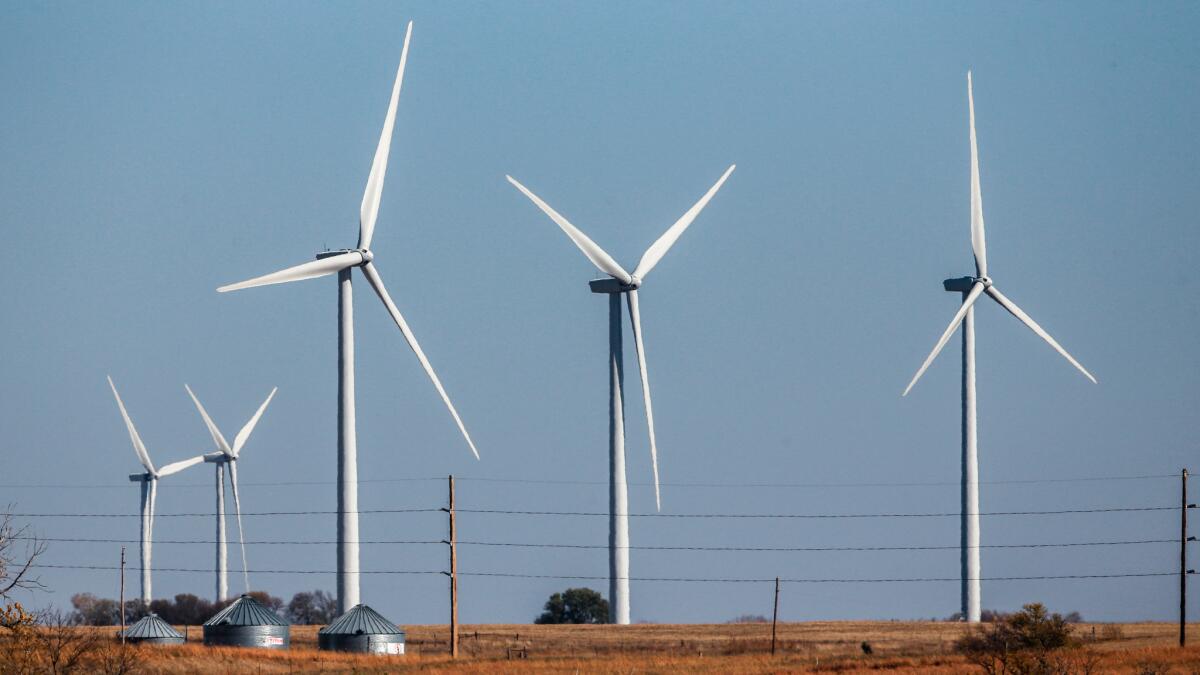
Clinton: I reject the notion that we as a country are forced to choose between our economy, our environment and our security. The truth is that with a smart energy policy we can advance all three simultaneously. My plan will deliver on the pledge President Obama made at the Paris climate conference — without relying on climate deniers in Congress to pass new legislation. This includes:
• Defending, implementing and extending smart pollution and efficiency standards, including the Clean Power Plan and standards for cars, trucks, and appliances that are already helping clean our air, save families money and fight climate change.
• Investing in clean energy infrastructure, innovation, manufacturing and workforce development to make the U.S. economy more competitive and create good-paying jobs and careers.
• Ensuring the fossil fuel production taking place today is safe and responsible and that areas too sensitive for energy production are taken off the table.
• Reforming leasing and expanding clean energy production on public lands and waters tenfold within a decade.
• Cutting methane emissions across the economy and put in place strong standards for reducing leaks from both new and existing sources.
Trump: It should be the goal of the American people and their government to achieve energy independence as soon as possible. Energy independence means exploring and developing every possible energy source including wind, solar, nuclear and biofuels. A thriving market system will allow consumers to determine the best sources of energy for future consumption.
What is your plan for the use, expansion or phasing out of nuclear power?
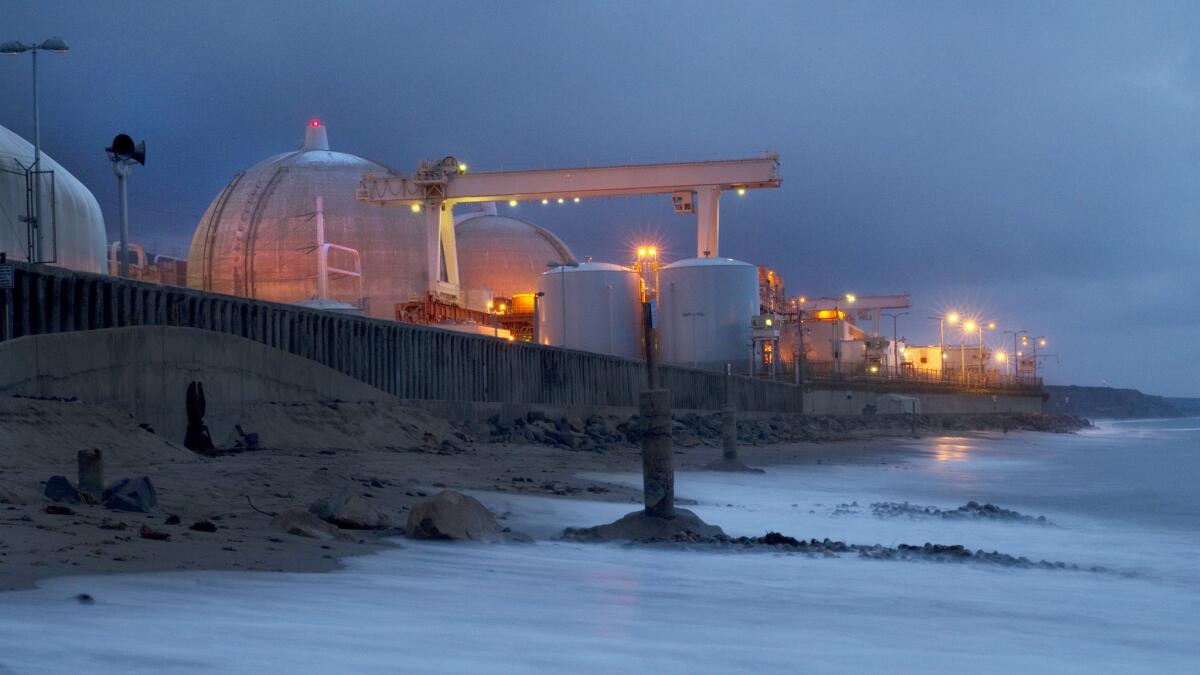
Clinton: Meeting the climate challenge is too important to limit the tools available in this fight. Nuclear power — which accounts for more than 60% of our zero carbon power generation today — is one of those tools. I will work to increase investment in the research, development and deployment of advanced nuclear power.
Trump: Nuclear power is a valuable source of energy and should be part of an all-the-above program for providing power for America long into the future. We can make nuclear power safer, and its outputs are extraordinary given the investment we should make. Nuclear power must be an integral part of energy independence for America.
How would your administration work to ensure all students are prepared to address 21st century challenges?
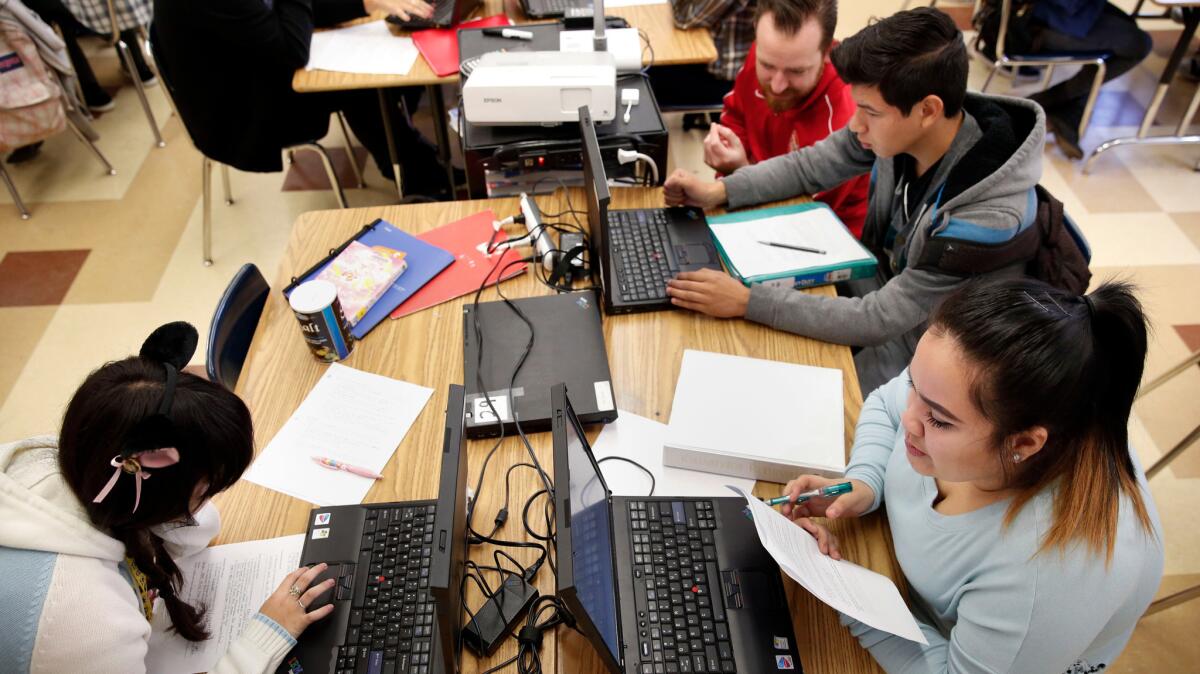
Clinton: Every student should have the opportunity to learn computer science by the time they graduate high school. I will take steps to increase investment and scale instruction and lesson programs that help improve student achievement or increase college enrollment and completion in computer science fields.
Strong STEM programming in every public school is critical to our nation’s success, and to reducing economic and social inequality.
Trump: There are a host of STEM programs already in existence. What the federal government should do is to make sure that educational opportunities are available for everyone. This means we must allow market influences to bring better, higher-quality educational circumstances to more children.
If you are elected, what steps will you take to ensure access to clean water for all Americans?
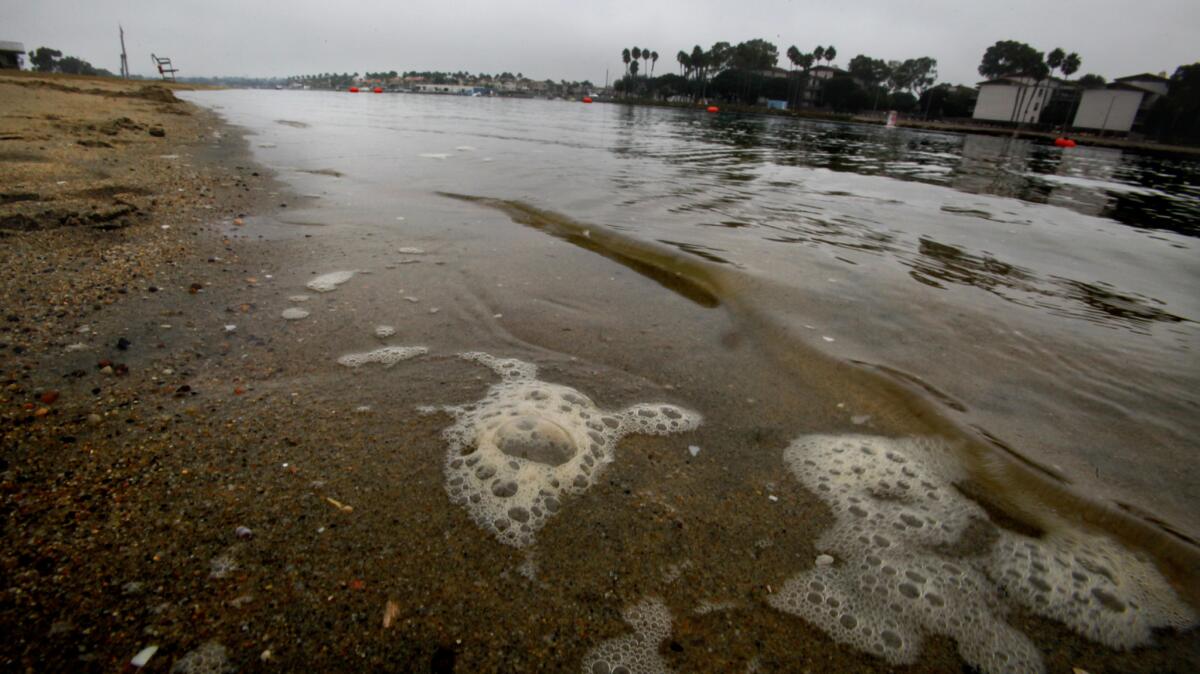
Clinton: Chronic under-investment in our nation’s drinking and wastewater systems has sickened and endangered Americans from Flint, Mich., to Ohio and West Virginia. Outdated and inadequate wastewater systems discharge more than 900 billion gallons of untreated sewage a year, posing health risks to humans and wildlife, disrupting ecosystems and disproportionately impacting communities of color.
We will work to bring cutting-edge efficiency, treatment and reuse solutions to our nation’s water challenges by establishing a new Water Innovation Lab. The lab will bring urban water managers, farmers and tribes together with engineers, entrepreneurs, conservationists and other stakeholders to develop practical and usable technologies and strategies that can be deployed by local water utilities, agricultural and industrial water users and environmental restoration projects across the country.
Trump: This may be the most important issue we face as a nation for the next generation. Therefore, we must make the investment in our fresh-water infrastructure to ensure access to affordable fresh-water solutions for everyone. We must explore all options to include making desalinization more affordable and working to build the distribution infrastructure to bring this scarce resource to where it is needed for our citizens and those who produce the food of the world
How would your administration balance national interests with global cooperation when tackling threats made clear by science, such as pandemic diseases and climate change, that cross national borders?
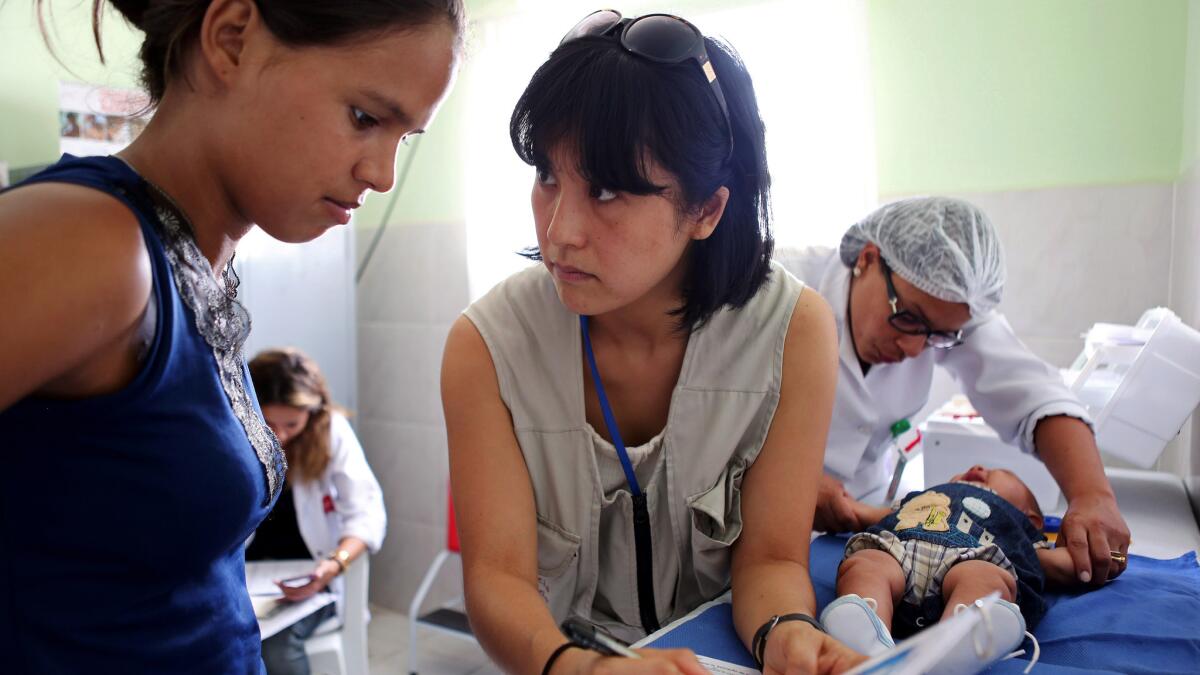
Clinton: As the world’s biggest and most powerful economy — and as the second-biggest emitter of greenhouse gases and the biggest historical emitter — the United States has a responsibility to lead the global response to the climate challenge. By making strong progress to reduce greenhouse gas emissions at home, President Obama was able to persuade and pressure other major emitters, including China and India, to step up. This dual process, where domestic policy changes helped spur international action, led to the historic 195-nation Paris climate agreement.
To keep global warming below the 2 degrees Celsius threshold and avoid the worst consequences of climate change, we need to cut emissions by at least 80% below 2005 levels by mid-century. That’s why we must work to support more clean energy investment in emerging economies, help developing nations build resilience to the climate impacts that can’t be avoided, and continue to drive clean energy innovation here at home.
We will also create a comprehensive global health strategy that moves beyond the disease-by-disease emergency model and seeks to build a robust, resilient global health system capable of quickly responding to and ending pandemics.
Trump: Our best input to helping with global issues is to make sure that the United States is on the proper trajectory economically. A prosperous America is a much better partner in tackling global problems that affect this nation achieving its national objectives.
How would science inform your administration’s decisions to add, modify or remove federal regulations?
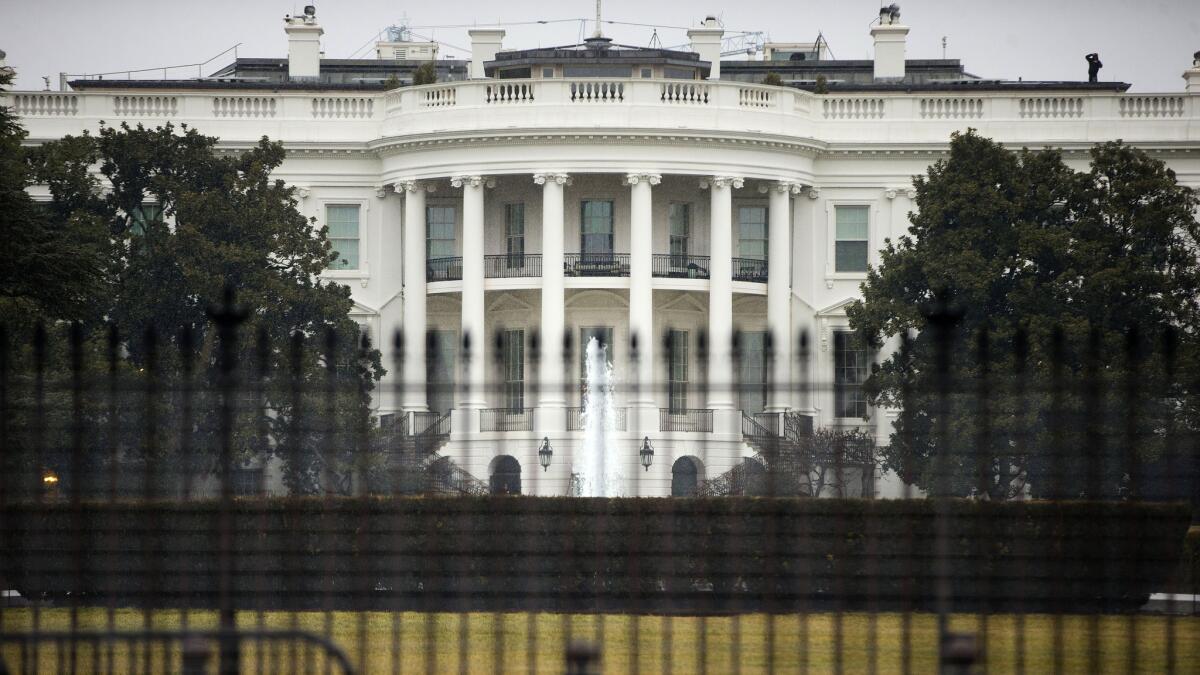
Clinton: It is essential that environmental, health and energy regulations, among other areas, use the best available science to guide decision-making, and I am committed to making sure that continues. We will continue to invest in research to further our understanding of disease, including ramping up our investment in Alzheimer’s and related dementias to $2 billion per year, continuing Vice President Biden’s cancer moonshot and scaling up our broader investment in the National Institutes of Health’s budget to combat all of the diseases of our day.
My opponent in this race has consistently discounted scientific findings, from his comments about vaccines to his claim that climate change is a hoax. These dangerous positions not only put Americans at risk, but can have long term impacts on our country’s growth and productivity.
Trump: Science will inform our decisions on what regulations to keep, rescind or add. A vibrant, robust free-market system will regulate the private sector.
How will your administration support vaccine science?
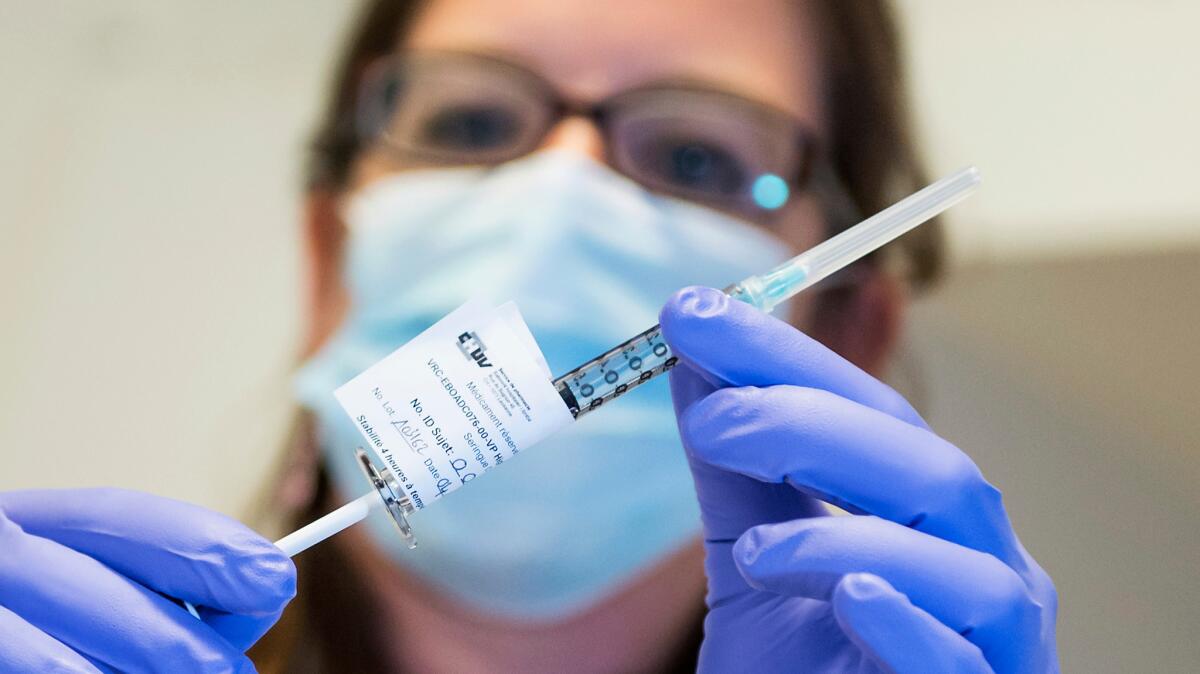
Clinton: Over the last two decades, we have made extraordinary global gains in reducing childhood illness and deaths through expanded use of vaccines and immunization. At the same time, the recent measles outbreaks in California’s Marin and Orange counties remind us that we cannot be complacent with our own nation’s vaccine policies. As president, I will work closely with the talented physicians, nurses and scientists in our U.S. Public Health Service to speak out and educate parents about vaccines, focusing on their extraordinary track record in saving lives and pointing out the dangers of not vaccinating our children.
Additionally, the recent outbreaks of Ebola, Zika, and MERS are a wake-up call that we must continue to innovate and develop disease countermeasures.
Trump: We should educate the public on the values of a comprehensive vaccination program. We have been successful with other public service programs, and this seems to be of enough importance that we should put resources against this task.
What policies will best ensure that America remains at the forefront of innovation?

Clinton: Advances in science and engineering start with education. We need to provide every public school student with access to education in computer science.
Both basic and applied research are major drivers of innovation. The innovation payoff comes from the commercialization of research results. The first step is what universities call “technology transfer” and the medical community calls “translation” — demonstrating the use of research results in practice and sharing the knowledge with the business community. The government has a critical role to play at this stage by opening access to and sharing government-funded research results.
Trump: The federal government should encourage innovation in the areas of space exploration and investment in research and development across the broad landscape of academia. Though there are increasing demands to curtail spending and to balance the federal budget, we must make the commitment to invest in science, engineering, healthcare and other areas that will make the lives of Americans better, safer and more prosperous.
Follow me on Twitter @LATkarenkaplan and “like” Los Angeles Times Science & Health on Facebook.
ALSO
Astronomers spot spiral arms swirling around a young star, offering clues to planet formation
For patients who need bone grafts, a 3D-printer could come to the rescue
Eye-tracking technology shows that preschool teachers have implicit bias against black boys







